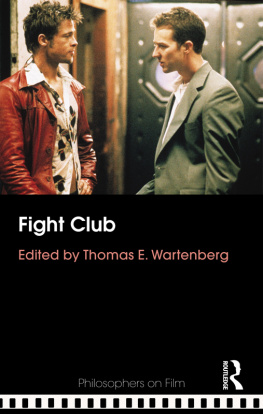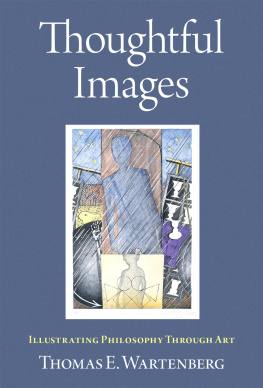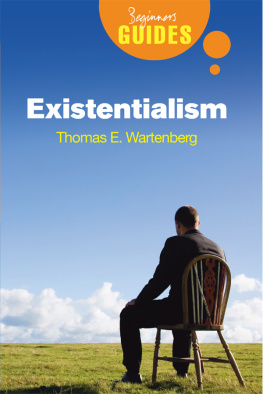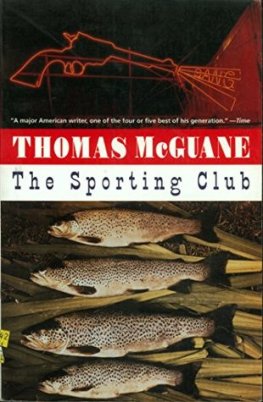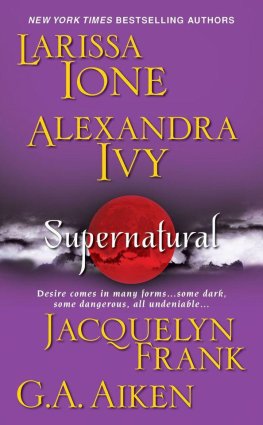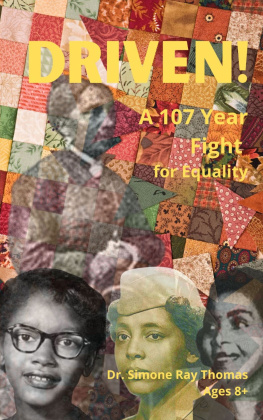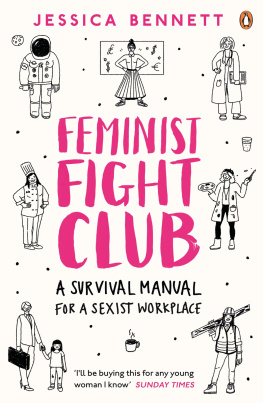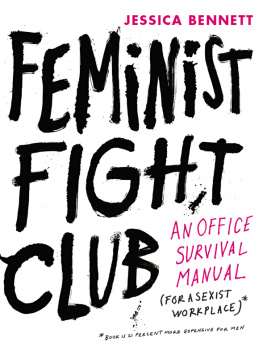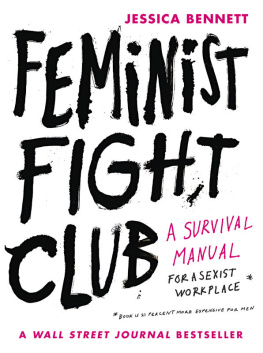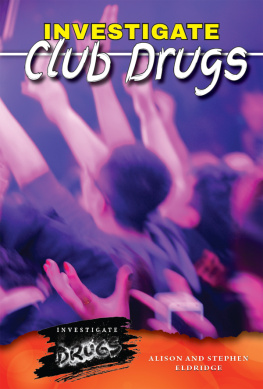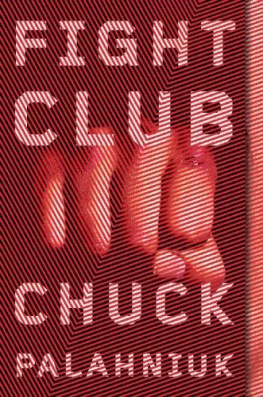Thomas E. Wartenberg - Fight Club
Here you can read online Thomas E. Wartenberg - Fight Club full text of the book (entire story) in english for free. Download pdf and epub, get meaning, cover and reviews about this ebook. City: New York, Abingdon, Oxon, year: 2012, publisher: Routledge, genre: Romance novel. Description of the work, (preface) as well as reviews are available. Best literature library LitArk.com created for fans of good reading and offers a wide selection of genres:
Romance novel
Science fiction
Adventure
Detective
Science
History
Home and family
Prose
Art
Politics
Computer
Non-fiction
Religion
Business
Children
Humor
Choose a favorite category and find really read worthwhile books. Enjoy immersion in the world of imagination, feel the emotions of the characters or learn something new for yourself, make an fascinating discovery.
- Book:Fight Club
- Author:
- Publisher:Routledge
- Genre:
- Year:2012
- City:New York, Abingdon, Oxon
- Rating:4 / 5
- Favourites:Add to favourites
- Your mark:
- 80
- 1
- 2
- 3
- 4
- 5
Fight Club: summary, description and annotation
We offer to read an annotation, description, summary or preface (depends on what the author of the book "Fight Club" wrote himself). If you haven't found the necessary information about the book — write in the comments, we will try to find it.
Fight Club — read online for free the complete book (whole text) full work
Below is the text of the book, divided by pages. System saving the place of the last page read, allows you to conveniently read the book "Fight Club" online for free, without having to search again every time where you left off. Put a bookmark, and you can go to the page where you finished reading at any time.
Font size:
Interval:
Bookmark:
Fight Club
Released in 1999, Fight Club is David Finchers popular adaption of Chuck Palahniuks cult novel, and one of the most philosophically rich films of recent years. This is the first book to explore the varied philosophical aspects of the film. Beginning with an introduction by the editor that places the film and essays in context, each chapter explores a central theme of Fight Club from a philosophical perspective. Topics discussed include:
Fight Club, Platos cave and Descartes cogito
Moral disintegration
Identity, gender and masculinity
Visuals and narration.
Including annotated further reading at the end of each chapter, Fight Club is essential reading for anyone interested in the film, as well as those studying philosophy and film studies.
Thomas E. Wartenberg is Professor of Philosophy at Mount Holyoke College, USA. He is author of the Routledge book Thinking on Screen: Film as Philosophy (2007), Existentialism: A Beginners Guide (2008), and Big Ideas for Little Kids: Teaching Philosophy Through Childrens Literature (2009). He is editor (with Cynthia Freeland) of Philosophy and Film (1995), also available from Routledge.
Philosophers on Film
In recent years, the use of film in teaching and doing philosophy has moved to center stage. Film is increasingly used to introduce key topics and problems in philosophy, from ethics and esthetics to epistemology, metaphysics and philosophy of mind. It is also acknowledged that some films raise important philosophical questions of their own. Yet until now, dependable resources for teachers and students of philosophy using film have remained very limited. Philosophers on Film answers this growing need and is the first series of its kind.
Each volume assembles a team of international contributors to explore a single film in depth, making the series ideal for classroom use. Beginning with an introduction by the editor, each specially commis-sioned chapter will discuss a key aspect of the film in question. Additional features include a biography of the director and suggestions for further reading.
Philosophers on Film is an ideal series for students studying philosophy and film, esthetics, and ethics, and anyone interested in the philosophical dimensions of cinema.
Available:
Talk to Her, edited by A. W. Eaton
The Thin Red Line, edited by David Davies
Memento, edited by Andre Kania
Eternal Sunshine of the Spotless Mind, edited by Christopher Grau
Forthcoming:
Blade Runner, edited by Amy Coplan
Vertigo, edited by Katalin Makkai
Fight Club
Edited by
Thomas E. Wartenberg

This edition published 2012
by Routledge
2 Park Square, Milton Park, Abingdon, Oxon OX14 4RN
Simultaneously published in the USA and Canada
by Routledge
711 Third Avenue, New York, NY 10017
Routledge is an imprint of the Taylor & Francis Group, an informa business
2012 Thomas E. Wartenberg for selection and editorial matter; individual contributors for their contributions.
The right of the editor to be identified as the author of the editorial material, and of the authors for their individual chapters, has been asserted in accordance with sections 77 and 78 of the Copyright, Designs and Patents Act 1988.
All rights reserved. No part of this book may be reprinted or reproduced or utilised in any form or by any electronic, mechanical, or other means, now known or hereafter invented, including photocopying and recording, or in any information storage or retrieval system, without permission in writing from the publishers.
Trademark notice: Product or corporate names may be trademarks or registered trademarks, and are used only for identification and explanation without intent to infringe.
British Library Cataloguing in Publication Data
A catalogue record for this book is available from the British Library
Library of Congress Cataloging in Publication Data
Fight club/edited by Thomas E. Wartenberg. 1st ed.
p. cm. (Philosophers on film)
Includes bibliographical references and index.
1. Fight club (Motion picture). I. Wartenberg, Thomas E.
PN1997.F4275F54 2011
791.43 72 dc22 2011003029
ISBN13: 978-0-415-78188-6 (hbk)
ISBN13: 978-0-415-78189-3 (pbk)
ISBN13: 978-0-203-80800-9 (ebk)
Contents
Illustrations
All illustrations in this volume are reproduced from Fight Club, Dir. David Fincher (1999)
Notes on the contributors
Nancy Bauer is Associate Professor of Philosophy at Tufts University, where she teaches courses in feminist philosophy, philosophy and film, phenomenology and existentialism, philosophy of the ordinary, and ethics. She is the author of Simone de Beauvoir, Philosophy, and Feminism (2001) and is presently finishing up a book called How to Do Things with Pornography, which is a meditation on contemporary philosophys powers to criticize the culture from which it springs. Most of her writing is concerned in one way or another with the attenuation of philosophys social relevance in the wake of its professionalization in the twentieth century.
Ben Caplan is Associate Professor in Philosophy at Ohio State. He works mainly in metaphysics, construed broadly to include the ontology of art. He has published several papers in the British Journal of Aesthetics with Carl Matheson and was once a Teen Movie Critic for the Montreal Gazette.
Charles Guignon is professor of philosophy at the University of South Florida in 2001, he taught at the University of Texas at Austin, Princeton University, and the University of Vermont. He is the author of Heidegger and the Problem of Knowledge and On Being Authentic, and co-author of Re-envisioning Psychology. In addition, he edited The Cambridge Companion to Heidegger, The Good Life, The Existentialists, and Dostoevskys The Grand Inquisitor, and co-edited Existentialism: Basic Writings and Richard Rorty.
Sam Shpall is a Postdoctoral Fellow in Philosophy at the University of Southern California. He works chiefly in ethics, but he also writes on film and the philosophy of art. He received his PhD from USC in 2011.
Murray Skees is Visiting Assistant Professor at the University of North Florida. His articles have appeared in the International Philosophical Quarterly, Film and Philosophy, Critical Horizons, and Philosophy and Social Criticism. He has published on film, esthetics, digital culture, and social and political thought.
Cynthia A. Stark is Associate Professor of Philosophy at the University of Utah. She works on political philosophy, ethical theory, feminist philosophy, and philosophy through film. Most recently she has published articles in Hypatia, Metaphilosophy and Politics, Philosophy and Economics.
Thomas E. Wartenberg is Professor of Philosophy at Mount Holyoke College, USA. He is the author of two books on film: Unlikely Couples: Movie Romance as Social Criticism, and Thinking On Screen: Film as Philosophy (Routledge). He has recently edited three books: The Nature of Art, The Philosophy of Film: Introductory Text and Readings (with Angela Curran), and Thinking Through Cinema: Film as Philosophy (with Murray Smith). His most recent publications include Existentialism: A Beginners Guide, and Big Ideas for Little Kids: Teaching Philosophy Through Childrens Literature
Next pageFont size:
Interval:
Bookmark:
Similar books «Fight Club»
Look at similar books to Fight Club. We have selected literature similar in name and meaning in the hope of providing readers with more options to find new, interesting, not yet read works.
Discussion, reviews of the book Fight Club and just readers' own opinions. Leave your comments, write what you think about the work, its meaning or the main characters. Specify what exactly you liked and what you didn't like, and why you think so.

